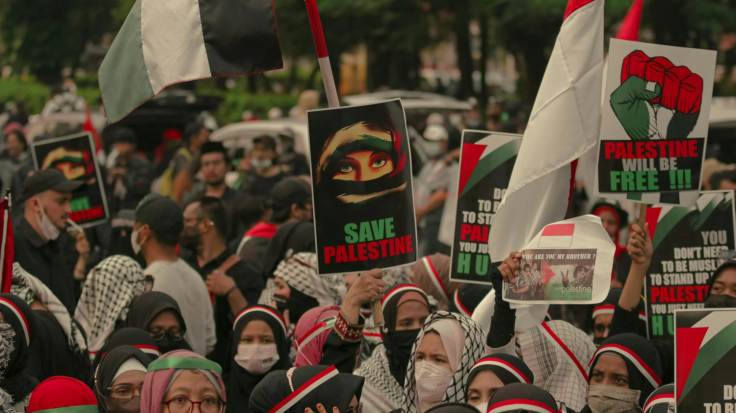In recent weeks, a series of confrontations between law enforcement and pro-Palestinian demonstrators at various universities across the United States has sparked concerns over the use of force and the protection of free speech on college campuses.
Incidents at Emory University in Atlanta, Emerson College in Boston, and the University of Texas at Austin have drawn attention to the increasingly heavy-handed approach taken by some police departments in handling these protests.

The Clash at Emory University
At Emory University in Atlanta, tensions flared as police clashed with pro-Palestinian protesters on the university's quadrangle. The confrontation quickly escalated, with the Atlanta Police Department and state troopers deploying tear gas canisters and rubber bullets. Videos shared by local media and bystanders showed police tackling demonstrators, restraining them with zip ties, and placing them in vehicles. The police department declined to disclose the number of arrests made, instead referring all questions to Emory officials, who later confirmed that "several dozen people" were taken into custody.
Initially, a university spokesperson denied that the protesters were affiliated with Emory, describing them as "activists attempting to disrupt our university." However, it later became clear that students and faculty members were among those arrested. The incident drew criticism from Democratic state lawmakers, who condemned the use of "excessive force" and blamed the state's Republican majority for creating an environment where such actions were deemed acceptable.
READ MORE : Students Erect Encampments Nationwide, Demanding University Divestment From Companies Linked To Israel
Violence Erupts at Emerson College
In Boston, a similar scene unfolded at Emerson College, where clashes between students and law enforcement turned violent. Students, attempting to block police from entering an alleyway, formed a barricade with their arms locked and held up umbrellas as makeshift shields. However, dozens of city police officers, dressed in helmets and reflective jackets, forcefully removed protesters from the line and dragged them along the ground.
The aftermath of the confrontation was evident the following day, with blood visible in the alleyway as city sanitation workers cleaned the cobblestones. Multiple students provided photos of their injuries sustained during the clash, while four police officers reportedly suffered non-life-threatening injuries. Despite the violence, Boston Mayor Michelle Wu stood by the actions of her officers, stating that ensuring the safety of all residents was her primary mission.
Arrests at the University of Texas at Austin
In Austin, the scene was similar as police descended on the University of Texas flagship campus to quell a protest. Clad in riot gear and brandishing shields, batons, and some assault rifles, officers arrested more than 50 protesters. The crackdown came after months of protests and escalated swiftly as colleges grappled with a fresh wave of unrest. Administrators on some campuses are adopting a harder line, increasingly turning to outside police forces to suppress demonstrations.
The heavy-handed response to these protests has raised alarm among student protesters, First Amendment advocates, historians, and others who have studied the impact of policing on college campuses. The Knight First Amendment Institute called the large-scale deployment of armed officers to suppress peaceful protests "a shocking development" and an assault on free speech.
A Call for De-escalation
As tensions continue to simmer, some Republicans in Congress, including House Speaker Mike Johnson, have called for more intervention from law enforcement. They urged President Biden to send in the National Guard to protect Jewish students, who have reported feeling threatened by antisemitic rhetoric and violence. However, critics argue that deploying the National Guard would represent a dramatic escalation and could lead to further violence.
Historians point to past tragedies, such as the 1970 Kent State University shootings, where Ohio guardsmen killed four students during a protest, as a stark reminder of the dangers of militarized responses to demonstrations. Charles H.F. Davis, an assistant professor at the University of Michigan, notes that using campus, local, and state police to crack down on student protests is not new. Still, it is profoundly hypocritical given the commitment many institutions have made to being anti-racist.
The recent clashes between police and pro-Palestinian protesters on college campuses highlight the challenges faced by universities in balancing free speech with public safety. As tensions continue to rise, authorities must exercise restraint and respect the rights of all individuals to demonstrate peacefully. The use of excessive force only serves to escalate conflicts and undermine the fundamental principles of democracy and free expression.
RELATED ARTICLE : Police Crack Down On Pro-Palestine Student Protests At UT Austin
© 2025 University Herald, All rights reserved. Do not reproduce without permission.








